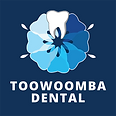Morning headaches, jaw pain and popping sounds... could it be TMJ Disorder?
- Toowoomba Dental

- Jun 23, 2025
- 3 min read
Updated: Jun 24, 2025
If you're waking up with a pounding headache, a tight jaw, or that strange sensation of having chewed through your dreams, you're not alone. These are common symptoms we see at Toowoomba Dental, and they're often brushed off as "just stress" or "sleeping funny."
But here's the thing: your jaw might be doing more than you realise.

What is TMJ Disorder?
Temporomandibular joint disorder (often shortened to TMJ or TMD) refers to issues affecting the jaw joint and the muscles that control its movement. It's a small but powerful hinge that connects your jaw to your skull, and when it's not functioning properly, it can cause pain and discomfort in places you wouldn’t expect.
Common Symptoms of TMJ Disorder (TMD)
Morning headaches or migraines
Jaw clicking or popping
Sore or tight jaw muscles (especially in the morning or after meals)
Earaches or a feeling of fullness in the ears
Neck, shoulder, or facial tension
Sensitive or worn-down teeth
Interrupted sleep or waking tired
Many people are unaware that they're clenching or grinding their teeth (a condition known as bruxism) until the damage is already done. We’ve even had patients who only realised after cracking a molar or developing chronic headaches.
Stress can make TMJ disorders worse.
Our bodies often hold tension in the jaw, especially during times of stress or anxiety. Clenching while driving, tapping your teeth at work, or grinding in your sleep – it's more common than you think. And when left untreated, this repetitive strain can lead to cracked teeth, inflammation, and long-term joint dysfunction.
What can you do about it?
At Toowoomba Dental, we offer a range of treatment options tailored to each patient. Here are a few that make a big difference;
1. Custom Night Guards
These are not your average chemist "boil-and-bite" guards. Ours are professionally fitted to protect your teeth and reduce muscle tension during sleep. They also help correct bite alignment and minimise long-term wear.
2. TMJ Massage and Gentle Adjustment
Some patients benefit from soft tissue massage and gentle jaw guidance, performed by our trained dentists, to reduce muscle tension and increase range of motion.
3. Neuromuscular Relaxing Treatments This is a fancy way of describing a medical approach to help relax the overactive jaw muscles using a safe and precise method. It helps reduce clenching and provides long-lasting relief, especially for patients who have struggled with night guards or chronic pain.
4. Regular Monitoring and Check-Ins TMJ dysfunction can creep up slowly. That’s why we work closely with our patients to monitor symptoms, track improvements, and adjust treatment as needed. It’s not just about treating symptoms – it’s about preventing further damage.
We often hear:
“I didn’t realise how bad it was until it stopped.”
“I thought headaches were just part of being a tired parent.”
These are the small signs your jaw is asking for help – and we’re here to listen.
If this sounds like you, let’s chat. You don’t have to live with daily pain or unexplained discomfort. A simple check-up could be the first step to better mornings, clearer sleep, and healthier smiles.
📞 Call us to book a consult (07) 4646 4236
🌸 Visit us at toowoombadental.com.au
Note: This blog post is intended for informational purposes only and does not constitute medical advice. Please consult with a qualified healthcare provider for personalised recommendations.









Comments